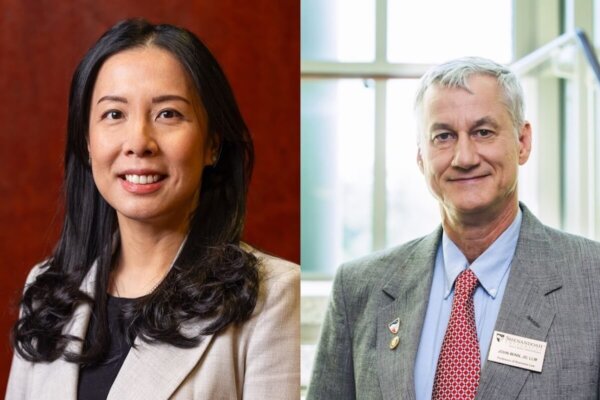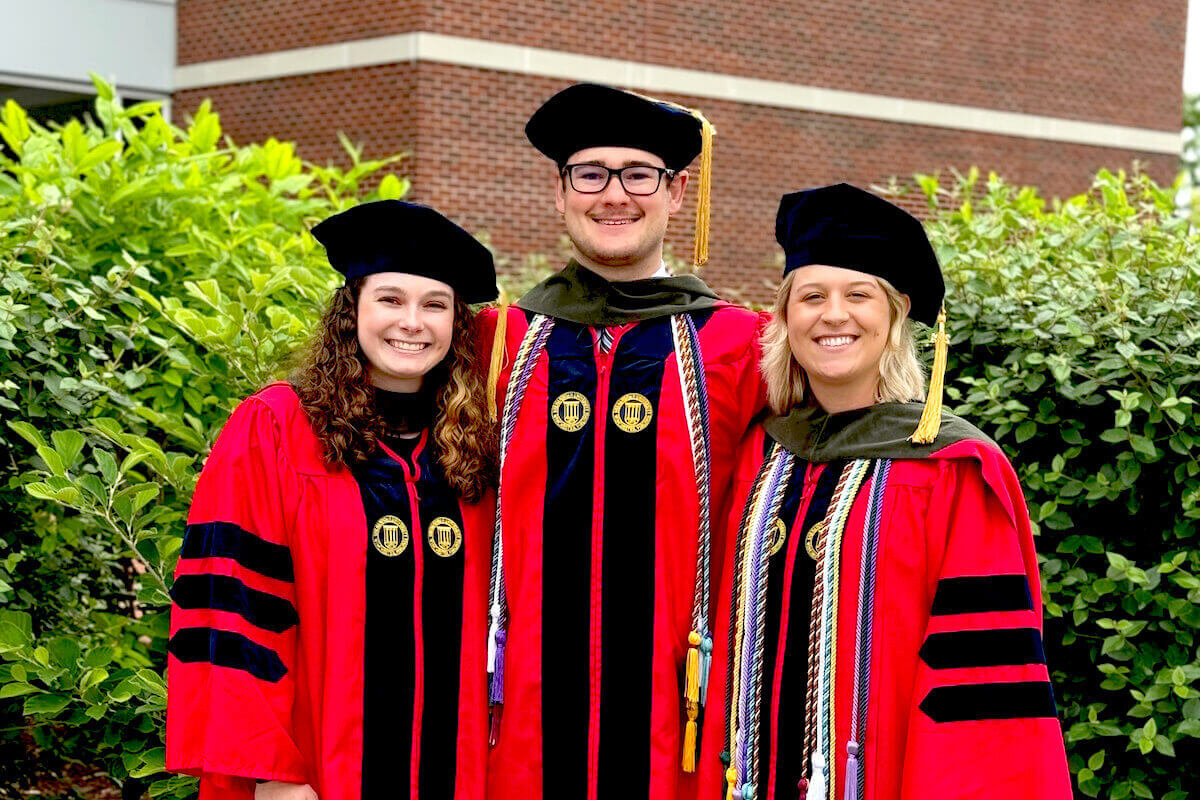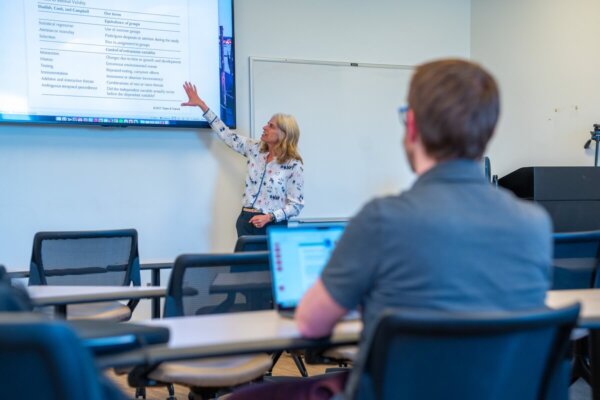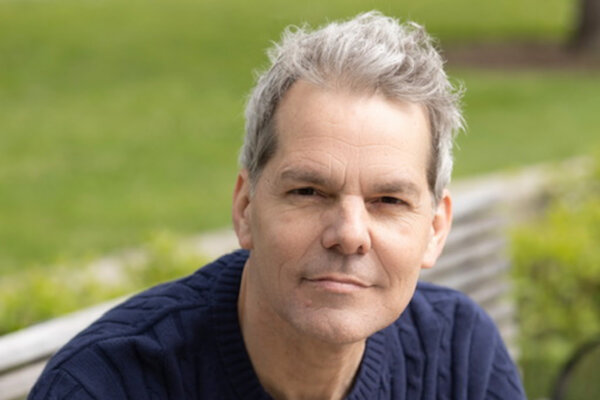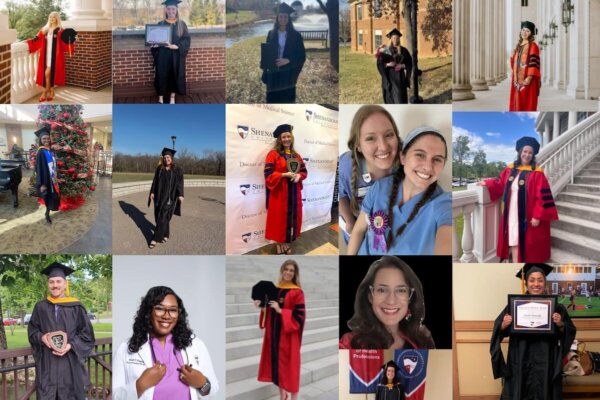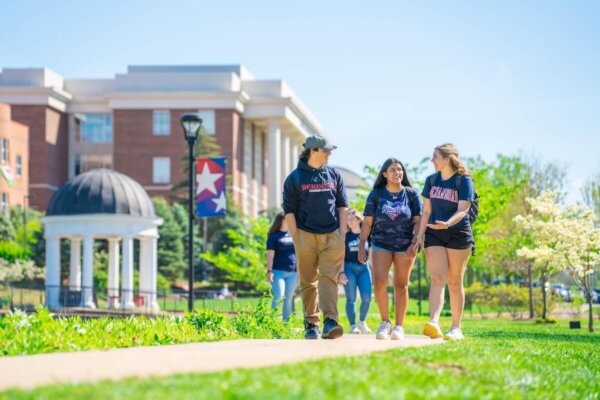Shenandoah Marks First Year of Its Youth Theology Institute
SUYTI Encourages High-School Students To Own Their Faith and Fully Integrate It Into How They Live Their Lives
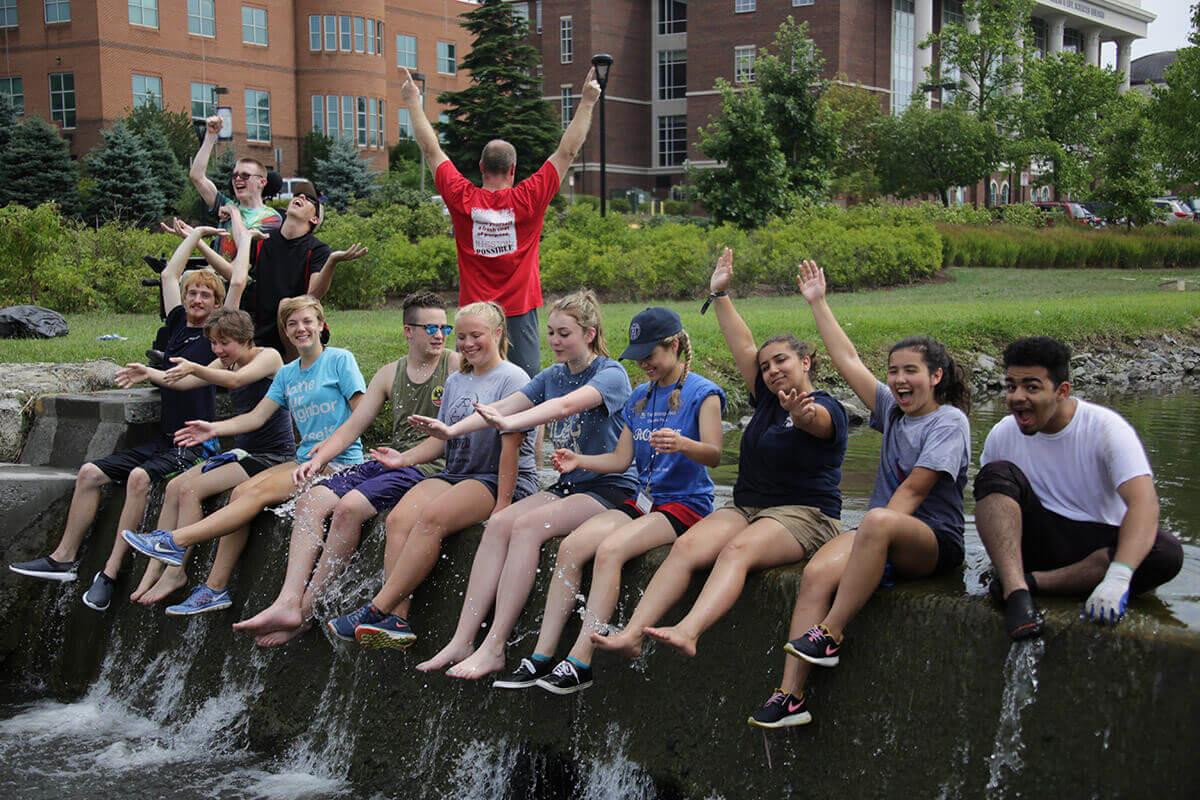
Twenty high school students from the mid-Atlantic and Northeast deepened their understanding of their faith at Shenandoah University’s inaugural two-week-long Youth Theology Institute (SUYTI) this summer.
The students spent a week at Shenandoah and a week studying at Wesley Theological Seminary in Washington, D.C., at the institute, one of 92 such programs around the country funded by grants from the Lilly Endowment Inc. Shenandoah’s institute is funded through a $600,000 four-year grant.
Each institute has its own focus, with Shenandoah’s being Christian Vocation in the 21st Century. Students rotated through three courses taught by Assistant Professor of Religion Meredith Minister, Ph.D., Assistant Professor of Religion Kevin Minister, Ph.D., and Elizabethtown College Assistant Professor of Religious Studies Richard Newton, Ph.D., said SUYTI Director Rev. Colleen Hallagan Preuninger:
- Christian Vocation in a Religiously Plural World, which examined how to communicate with those with different beliefs
- Christian Vocation for a Sustainable Society, which focused on ecology/theology, asking, for example, questions about how faith relates to the conservation of resources
- Christian Vocation for a Diverse Community, which considered issues of race, class, sexual orientation and systems of justice/injustice
“Our intention, ultimately, is to create and cultivate an immersive experience for high schoolers, where they can create and deepen, or reinforce, or become, more aware of the intersections of their belief system and the way they live their life, and the way they improve the future,” Preuninger said.

Aside from the courses, students also devoted time to worship, small-group discussions, and interfaith and service-learning opportunities, such as working at a community garden, helping Habitat for Humanity, cleaning up Abrams Creek on Shenandoah’s main campus, and visiting Holy Cross Abbey in Clarke County. While in Washington, D.C., the students also participated in seminars with the United Methodist General Board of Church and Society, visited Adat Shalom (a reconstructionist Jewish Community in Bethesda, Maryland), Masjid Muhammad Mosque, and the National Museum of African American History and Culture.
Graham Horvath, 17, of Fairfax County, said he feels like he now understands his faith better, and that previously he only scratched its surface. For him, the experience at Holy Cross was particularly affecting. He called the experience beautiful and peaceful, and he said it was “amazing” to just spend some time at the monastery, in silence.
The Lilly Foundation’s goal, with the establishment of institutes like Shenandoah’s, is to influence the current generation by equipping them with skills of discernment, critical theological engagement, and intersectional awareness through participation in a rigorous cultivated community that provides students with the skills needed to live an integrated life that doesn’t compartmentalize their emerging faith, Preuninger said.
The questioning and the overall SUYTI experience also helps remove fear, and when fear is no longer present, Preuninger said that opens a world of theological imagination, allowing one to embody what she would call, “the spirit of God.”

While the SUYTI is framed within the Christian tradition, it could be modified to include other faiths, Preuninger said. The institute is designed to empower students with information about the Bible and how it is used in Christian traditions, to understand faith better, and how to incorporate it into their lives.
For many of the student participants, the institute’s take on different worship styles made a deep impression, as did the time spent in small groups working through ideas with their peers.
Corran Hale, 17, of Caroline County, said he felt like he could truly engage in deep discussions with fellow participants.
During the small groups, Preuninger said, students had discussions like: “Is God in everything? Is God in trees?” Sounds silly, but if they say yes, what does it really mean? “How do we ethically reconcile cutting them down?” Questioning is central to the SUYTI, added Preuninger, who noted that the process of asking questions “breaks something open within you.”
“Diversity has really made this experience more powerful,” said Whitney Wright, 16, of Bridgewater, noting that what she experienced at SUYTI was different than what she was used to in relation to faith, and that was eye-opening and powerful.
Students receive three college credits for the institute, with everything experienced during the institute counting as contact hours, Preuninger said. Those credits also can be used toward the Faith Seeking Justice Christian Leadership Program certificate if students decide to attend Shenandoah in the future.

Students took advantage of the sanctuary space at Goodson Chapel, which featured little traditional worship space, and instead included music and activities, such as an indoor labyrinth, said mentor Andrew Dietz ’17. He noticed students embracing practices as their own, which he said is imperative for having a fully realized faith. Dietz was one of four mentors for the SUYTI, for whom, Preuninger said, the institute provided Christian leadership experience.
According to the SUYTI web page, the institute’s daily schedule followed a rhythm that encouraged students to “develop, grow, and learn as leaders through experimentation, vocational discernment, and self-reflection.”
This rhythm followed the pattern of:
- looking up (through worship experience)
- looking in (understanding themselves through reflection)
- looking out (through immersive experiences)
- looking in (more self-reflection)
- looking up (worship experience)
The SUYTI experiences in Winchester and Washington, D.C., followed the same daily pattern, while allowing the students a more “rural” experience in the Winchester area and a more urban one in the nation’s capital, centered around the rural experience in the Garden of Eden in Genesis 2 and the urban new Jerusalem in Revelation 21.
On the final day of the institute, student participants needed to present their ideas for a justice project, which should be an idea that is compatible with, but not the function of, their local church. The students then must present their ideas to their church and write a reflection/report of the outcomes by Sept. 15. It’s not necessary for the project to succeed, Preuninger said. Instead, the goal is for students to connect their local faith community needs with what they’ve learned at the institute and to build skills of translation. “The point is not the product, although we do want students to work for change and justice in their contexts. The point is the process,” she said.
At heart, the SUYTI is designed to help students better understand their faith and integrate it into their lives and futures. That’s what all the coursework, experiences, worship, contemplation, discussion, and projects lead toward. “It’s necessarily complex to get to something elemental,” said Preuninger.
